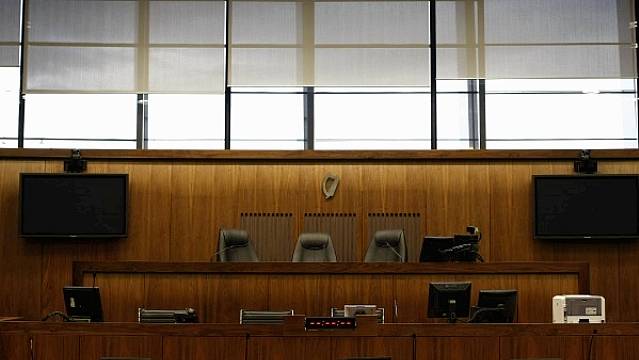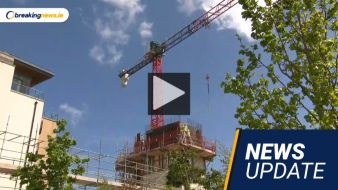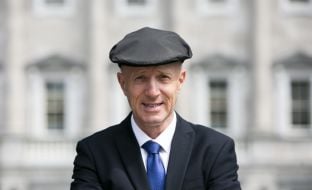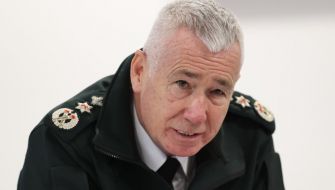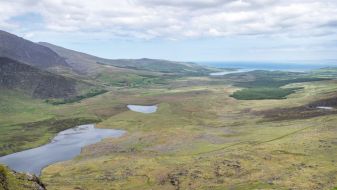Two men will go on trial for the murder of gangland figure Eamon Kelly at the Special Criminal Court next week after their application to get their cases moved away from the three-judge, non-jury court failed this morning.
Lawyers for the two men argued that the court was a de-facto permanent court but had only been established as an emergency court in 1972 and therefore did not have the jurisdiction to hear the cases. They also argued that the human rights of their clients could arguably be being breached by not having their cases heard before a jury.
The two men, Kenneth Donohoe (42) of Hazelgrove Estate, Tallaght, Dublin 24, and Darren Murphy, (50) of Rory O'Connor House, Dublin 1, are both accused of the murder of Eamon Kelly (65), a father of nine, at Furry Park Road, Killester, Dublin 5, on December 12, 2012.
Both men are also accused of possession of a firearm, a Glock pistol, with intent to endanger life, on the same date and at the same location.
Cases can be transferred to the Special Criminal Courts when the DPP certifies that in their opinion, the ordinary courts are inadequate to secure the effective administration of justice and the preservation of public peace and order.
Brendan Grehan SC, for Mr Donohoe, told the court that the submission on behalf of his client followed "very much hot on the heels of another application" which was refused by the Special Criminal Court two days beforehand.
Lunney case
On Tuesday, the court rejected arguments that it had no jurisdiction to hear the trial of four men accused of abducting and causing serious harm to Quinn Industrial Holdings director Kevin Lunney in Cavan in 2019.
In that matter, presiding judge Mr Justice Tony Hunt said that the court had been established in legislation and that the documents before the court from the DPP ordering their trial in the non-jury court were in order and said that the trial would go on as normal.
Today, Mr Grehan told the court that he was bringing a similar application and said that the declaration of an emergency situation which underpinned the court's existence had now been in place since 1972, "almost 50 years ago".
Presiding judge Mr Justice Alexander Owens said that the court was established by statutory means and that the court could not entertain the submission.
Mr Grehan said that from a human rights perspective only two courts - a military court and the Special - were enshrined to try a person charged of an offence without a jury.
1972 Proclamation
The barrister said that the 1972 Proclamation had the provision of the courts being temporary but that they had been operating on a permanent basis, rather than a temporary one.
Mr Grehan said that there was nothing to stop the government from establishing a permanent Special Criminal Court but they had not done so and that the existing Special courts were to only sit from "time to time".
Mr Grehan said that the legislation underpinning the court did not admit it to be a permanent one.
He said that, with regards to the state of emergency proclamation that gave rise to the Special courts, the country had its "various ups and downs" in the almost 50 years since - including the situation in the North, ceasefires and the Troubles - but that today the landscape was "quite different".
Mr Grehan said that the decision of the DPP to send his client before the court could be seen to be a "denial of the democratic process" and that a person has the grounding right to be tried before a jury.
Paul Carroll SC, for Mr Murphy, said that he was adopting the same position as Mr Grehan for his client.
Jurisdiction
Dominic McGinn SC, prosecuting, said that the DPP still has the power to send charges to the ordinary courts and asked the judge as to whether the court had "the power to entertain this argument".
Mr McGinn said that the court could not go beyond the limitations set upon it by statute and that it "can't go beyond that".
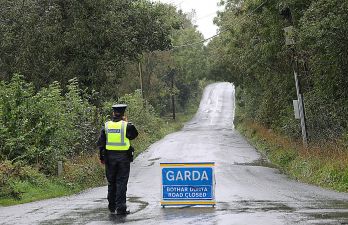
"You're simply saying that we don't have the jurisdiction to abolish ourselves," Mr Justice Owens told Mr McGinn, adding that the court "could not get into the political arena".
In rejecting the application, Mr Justice Owens said that Dáil Eireann could annul the proclamation establishing the courts but that it had not done so and that the proclamation was "extant".
"We're not going to knock ourselves out of existence because we don't have the power to do so," said Mr Justice Owens.
Both men are now due to appear before the court on Tuesday of next week for trial.
